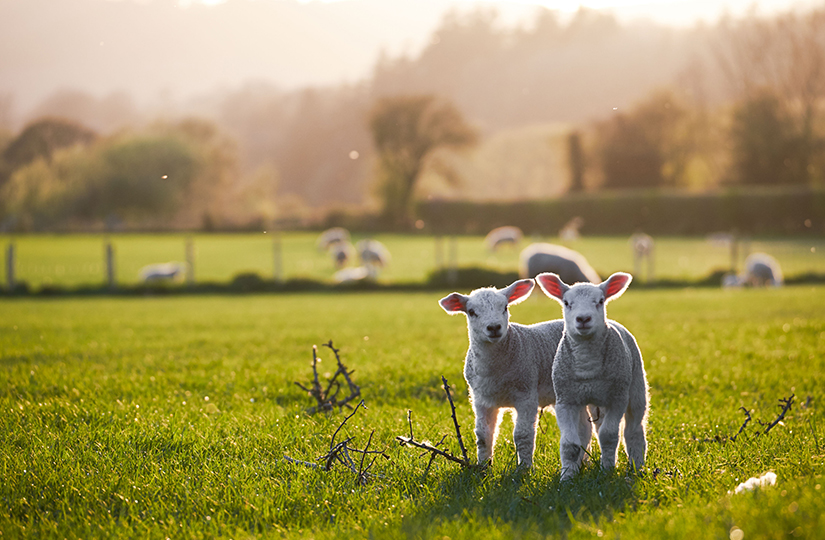Land Business Update | Week Commencing 1st March 2021
Welcome to our update on key land management, farming, planning and energy issues.
GRANTS AND FUNDING
Submit your claim for the Countryside Productivity Small Capital Grant Scheme as soon as possible (England only)
Defra is advising applicants not to wait until the 31st May deadline to submit their claim. If you have been awarded a grant and have paid for and installed the items, you can submit a claim at any time. Defra has so far received claims for @ 5% of the grants awarded.
Review any existing Growth Programme Round 3 applications (England only)
This grant, under the Rural Development Programme for England (RDPE), funded projects to create jobs or bring more money into the rural economy. There were three types of grant – for business development, for food processing and for rural tourism. Although closed to new applications, a further £10m has been allocated to this grant and a forecasting exercise by Defra indicates that this is enough to fund all eligible applications that meet the minimum requirement to be approved. Therefore, the use of the benchmark score has been ended. Applications from early batches of grants that had had a decision deferred due to being below the benchmark score are now being progressed to decision, with all applicants informed of this.
Applying for a new Countryside Stewardship agreement, extending an existing agreement or waiting for the ELM pilot
Countryside Stewardship is now open to applications for agreements that would start in 2022. However, making the decision on what scheme to consider is harder this year. Our farming team produces budgets and recommendations that compare extending existing agreements with the potential income and implications for farming systems of entering into a new agreement. They are currently recommending that land managers go into Countryside Stewardship rather than the waiting for the Environmental Land Management pilot, as it is a more known option and a later transfer to the pilot is possible. Also, Countryside Stewardship has more scope to transform farming systems, including to regenerative practices, compared with Higher Level Stewardship, due to the options available and greater scope for capital grants. Defra has not published any guidance on this. Please read our article on key changes for 2022 agreements or contact Jonathan Armitage if you would like to discuss this.
Scottish National Party under fire for ‘savage’ cuts to farming climate funding
The SNP has come under fire for cutting funding to help farmers tackle the climate emergency. In the draft Scottish Government Budget, the budget for the Agri-Environment Climate Scheme (AECS), which supports nature and climate friendly farming methods, has been cut from £43m to £34m. Inevitably, it has become a political issue with the SNP blaming a cut in funding from the UK government. Scottish Labour has said that the cut reduces agri-environment funding down to just 6% of total farm support.
FARMING
Piecing together the rural carbon jigsaw
We have published an in-depth research report exploring the challenge that has been laid down to land managers and how they can start their journey towards measuring and improving their carbon footprint, while running resilient and successful businesses. It includes articles on how to generate income from carbon farming; why do a farm carbon audit; practical ways to cut greenhouse gas emissions from farms and a Q&A on carbon accounting. The articles are available on our Rural Hub and the full publication here.
FORESTRY
Tree risk strategies
With increasing use of the countryside by visitors to the countryside and visitor attractions and the increase in tree failures because diseases such as Ash dieback, land managers should consider how they manage the safety of the trees on their land. A land manager is responsible, under both civil and criminal law, for the health and safety of those on or near the land and has potential liabilities arising from a falling tree, branch or structural failure. A tree management plan, based on a common-sense, risk-based approach, which identifies and records any works recommended to be carried out can provide peace of mind. Please contact Oliver Thompson in our forestry team for further information.
ENVIRONMENT
Latest on Environmental Land Management (ELM) tests and trials – part 2
This is our second update from the latest quarterly review that Defra has published of the early findings from the 60 tests and trials that it is funding to help design the new ELM. The findings are organised by what are called priority themes and this update covers the remaining three themes (collaboration, payments and innovative delivery mechanisms):
- Under the collaboration theme, there is widespread consensus that most farmer groups will require some form of facilitation, regardless of size, sector, and focus. Feedback from one test is that groups should follow a ‘bottom-up’ co-design approach in which members maintain a sense of ownership over their work and facilitators play a supporting role only. Other tests and trials suggest that digital mapping and data sharing apps can be useful tools for collaboration. The tests will continue to assess if and how land managers could be paid for collaboration and to more objectively assess the benefits that collaboration can deliver.
- The payments theme is a fascinating and important one as there is a strong feeling across the industry and environmental bodies that there is a better basis of payments than income foregone. Some tests are considering how a points-based payments system could work and how / if it could be combined with payments by results. Views on results-based payment approaches remain varied amongst 175 land managers across three test and trials; enthusiasm appears to be linked to familiarity. Land managers in the Dartmoor National Park, where there have been previous initiatives involving payments by results, prefer the approach. A challenge is how to design a system that takes into account external factors, such as extreme weather and market volatility, that could affect the results. This is being explored by a number of tests and also by Natural England.
- Finally, under the innovative delivery mechanisms theme, tests and trials are looking at reverse auctions, payments-by-results and private payments for environmental outcomes.
Some more detail on ELM pilot in George Eustice’s speech to the NFU Conference
The Secretary of State for Environment, Food and Rural Affairs provided some additional detail on how the ELM scheme will be rolled out:
- Sustainable Farming Incentive – this is what was previously known as Tier 1 – expressions of interest to take part will be issued ‘in the coming weeks’ (Defra had previously said June) and participants will be able to select from an initial set of eight standards to build their own agreements. An ‘early version’ (so read only partial) of the SFI will then open to all farms from 2022.
- Local Nature Recovery – this is what was previously known as Tier 2 and is broadly equivalent to Countryside Stewardship – will start recruitment for the pilot in 2021, with pilot agreements starting in mid-2022.
PROPERTY
Landlords could face fines of up to £5,000 if their properties are below EPC C
The government has hinted at this type of approach in its fuel-poverty strategy. It could be implemented alongside other changes, such as changes to make taxation on electricity more similar to those on other fuels, as the government wants to encourage electricity use rather than more polluting forms of heating, such as gas. A heating and energy framework is expected to be published shortly.
RURAL ECONOMY
The National Innovation Centre for Rural Enterprise (NICRE) is looking for policy advisors to help shape rural economies
NICRE, which is hosted by Newcastle University, has consultancy opportunities for suitably-skilled and experienced policy advisors to work closely with its researchers to help achieve its aim of being the ‘go-to resource’ for businesses, advisors, and national and regional policy makers wishing to access rural enterprise research and insight. The positions are part-time (around 100 days to July 2023). To find out more about the role and apply, search NU/1613 on the Procontract website. To informally discuss or ask any questions regarding the position, please contact jeremy.phillipson@ncl.ac.uk . Strutt & Parker is proud to be one of the founding commercial partners of NICRE.






